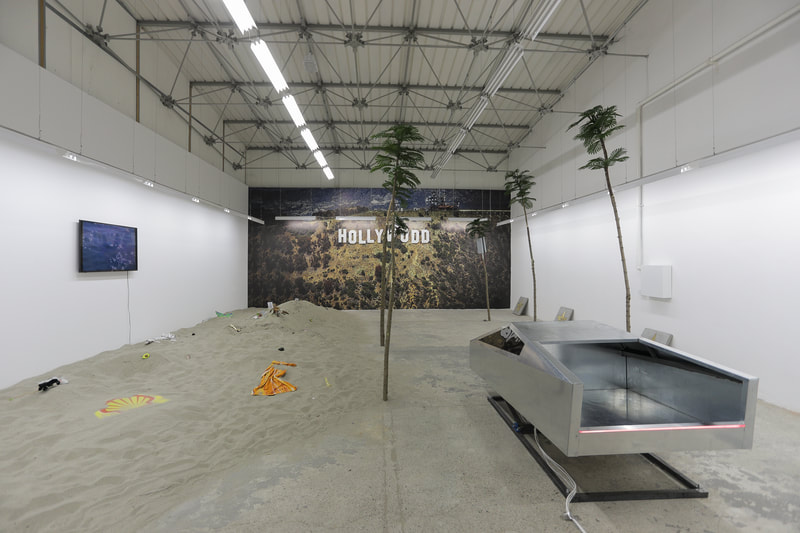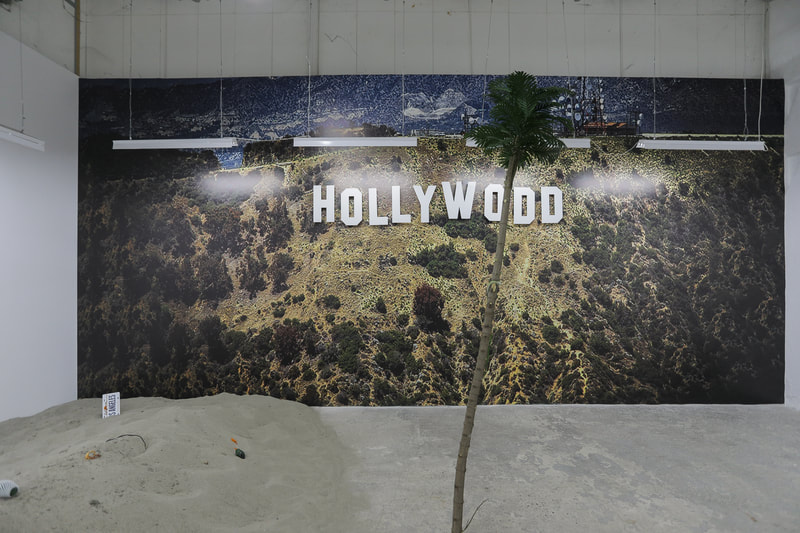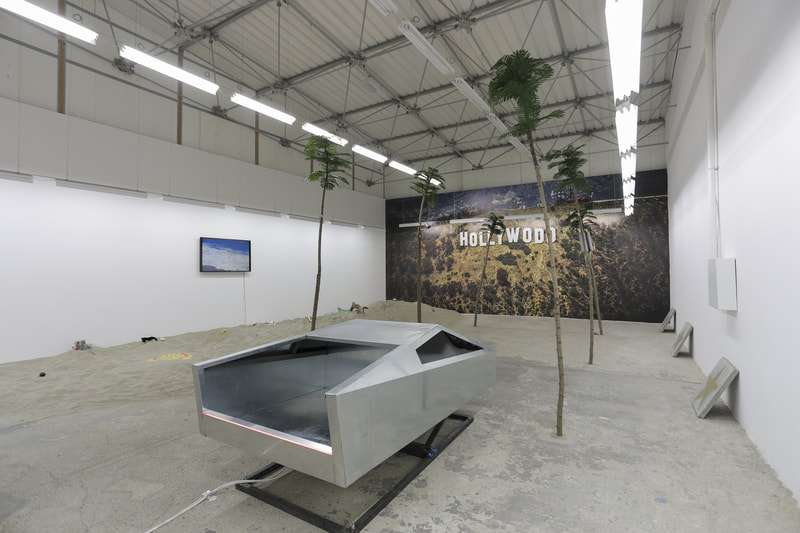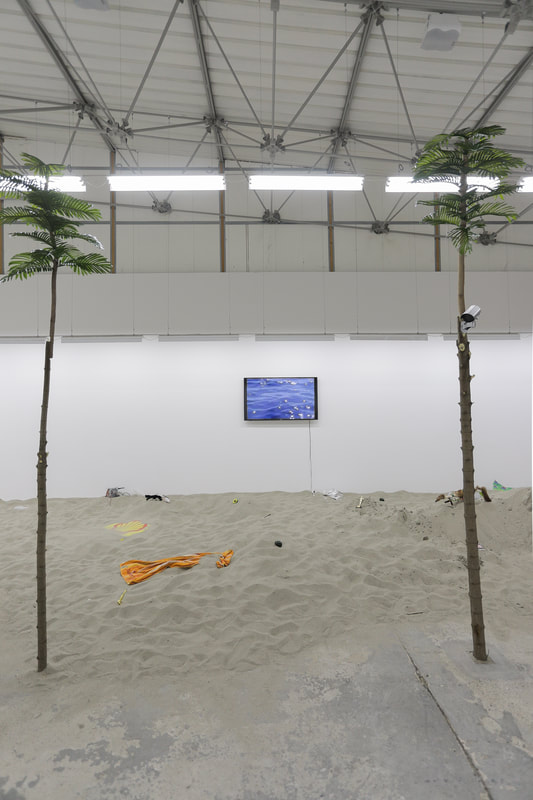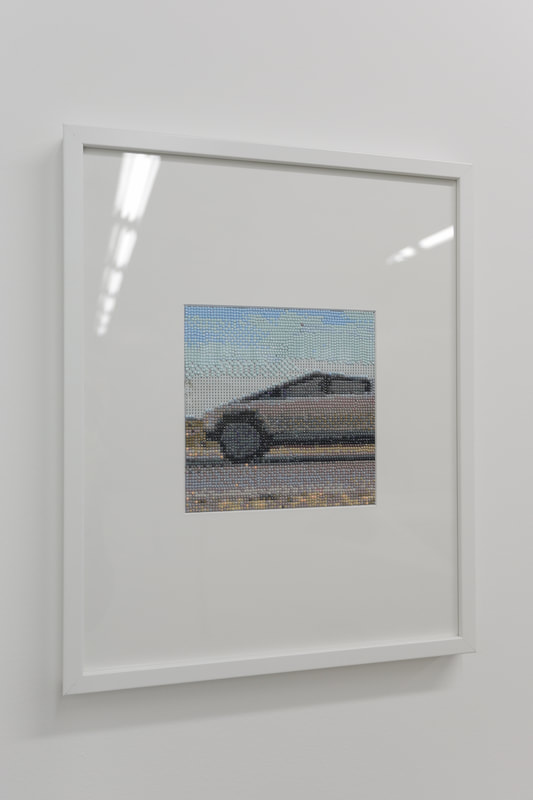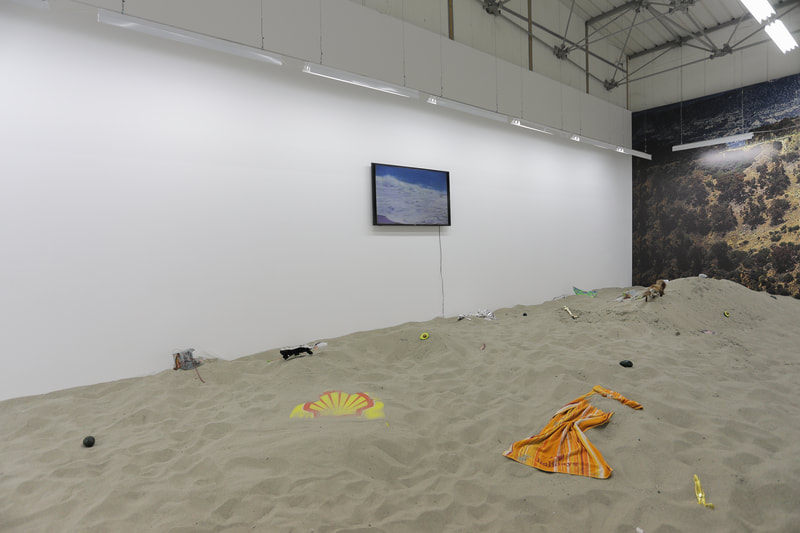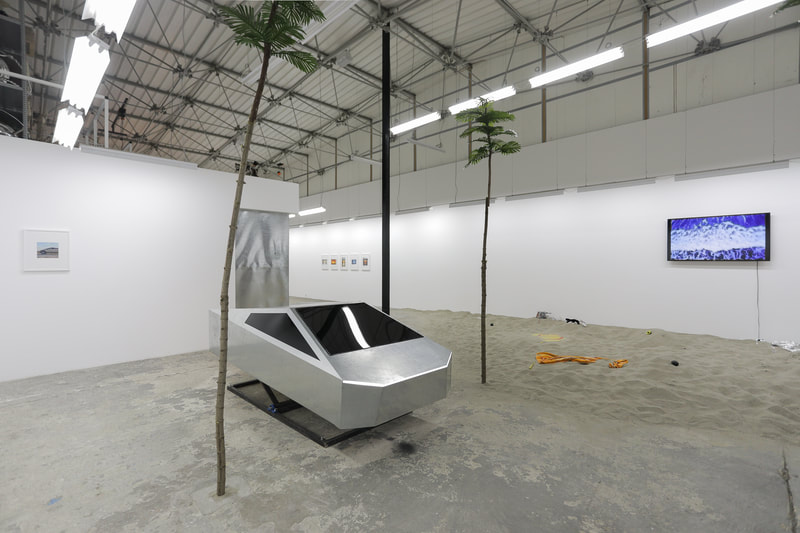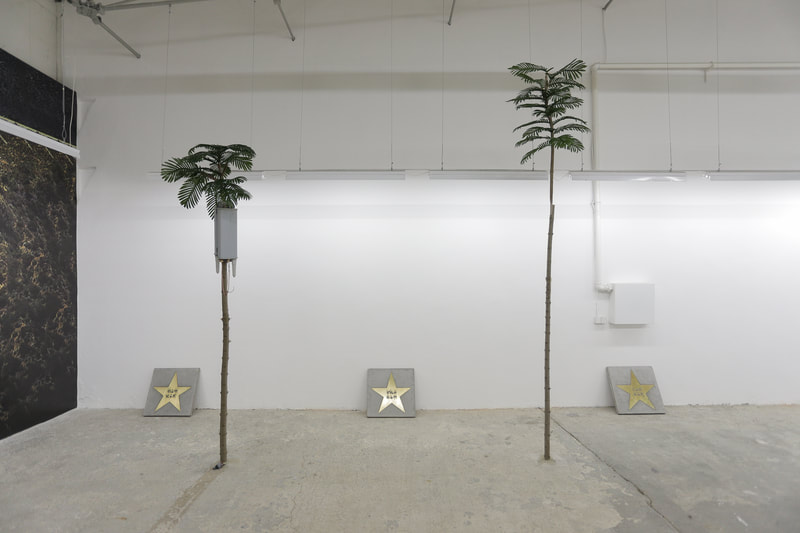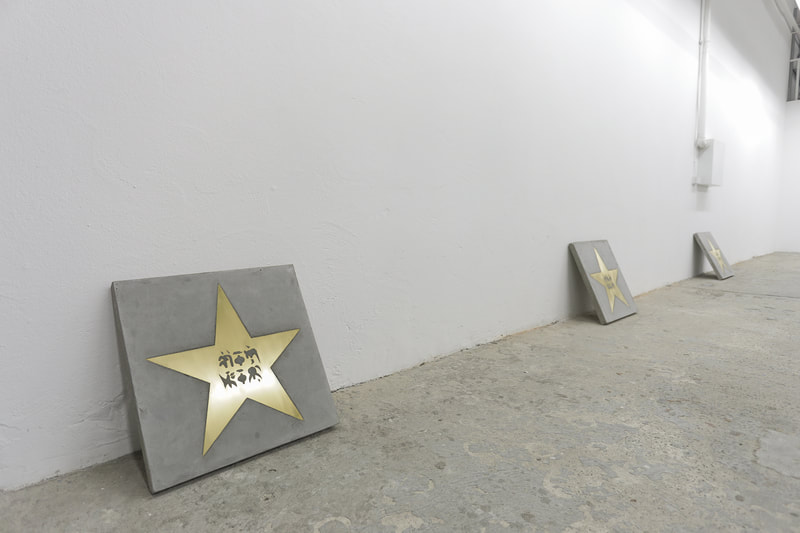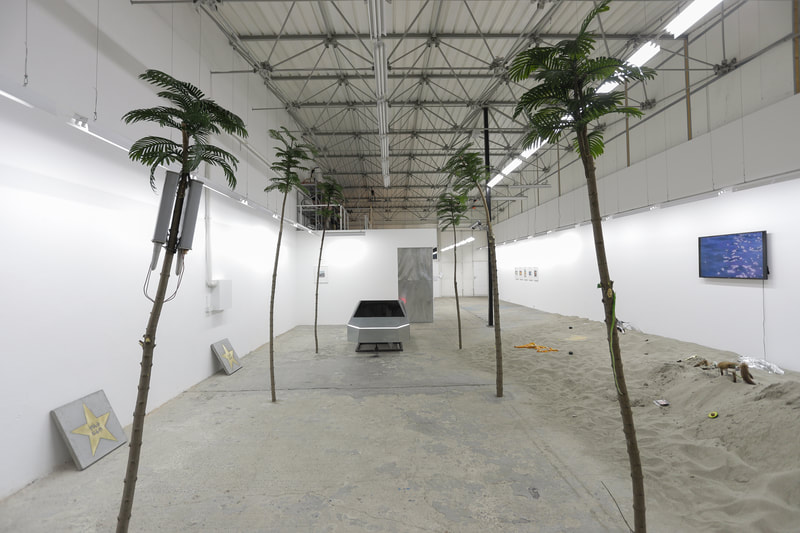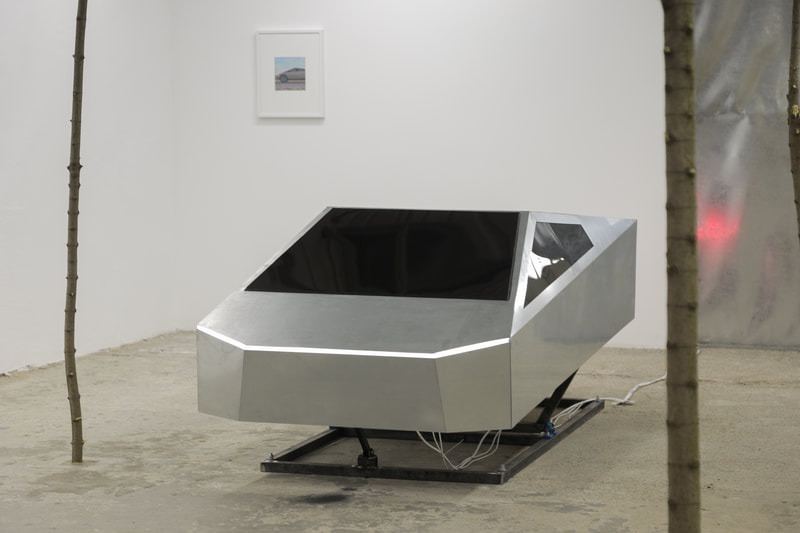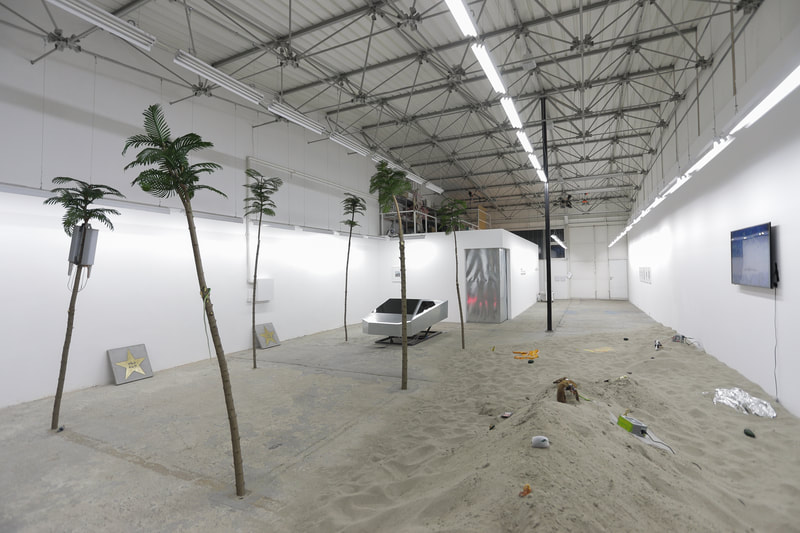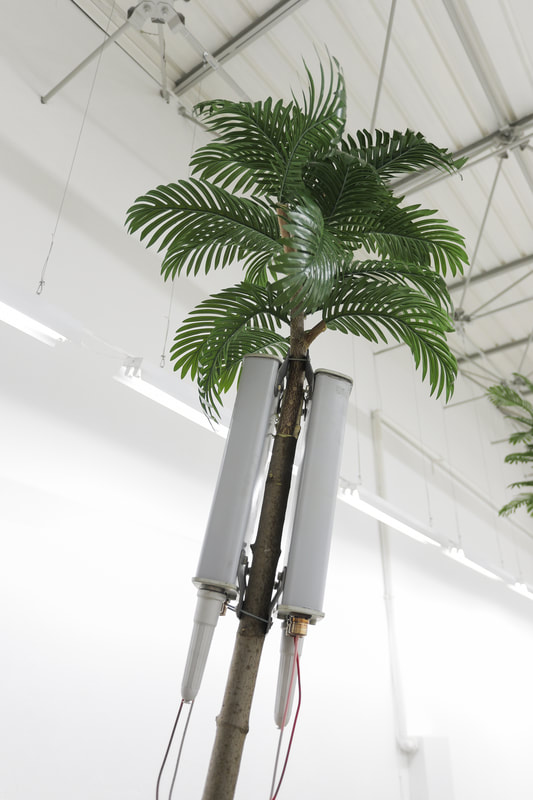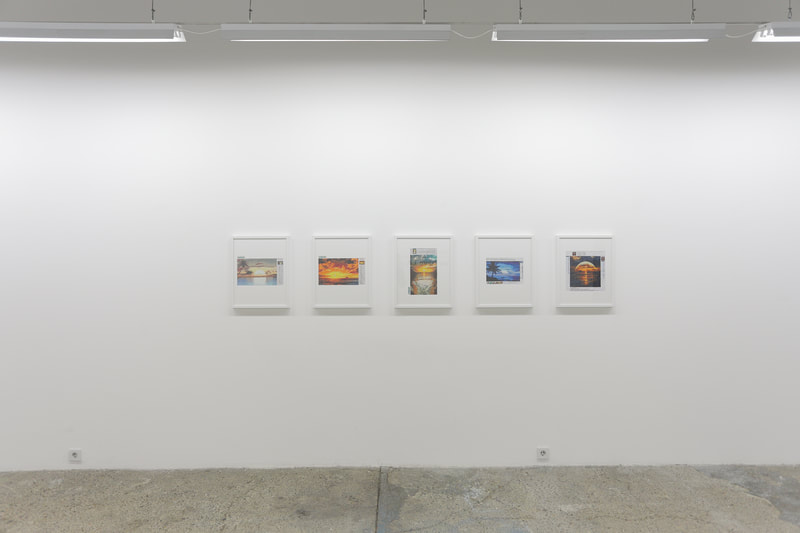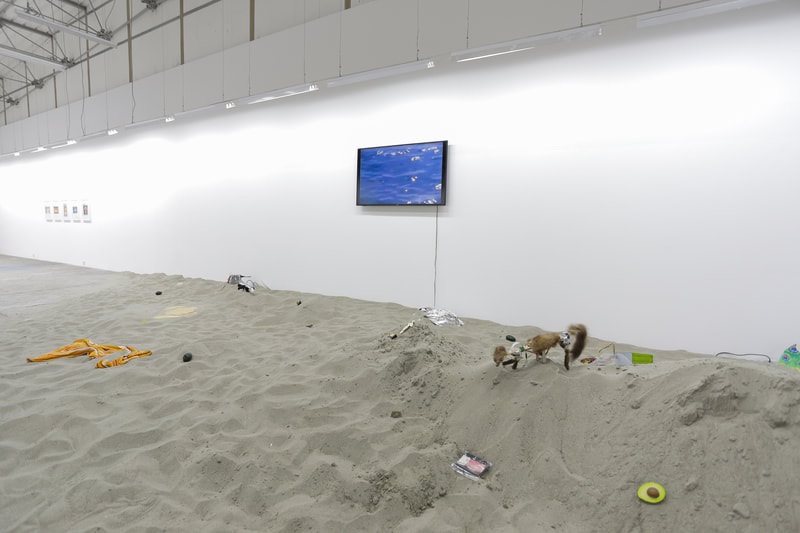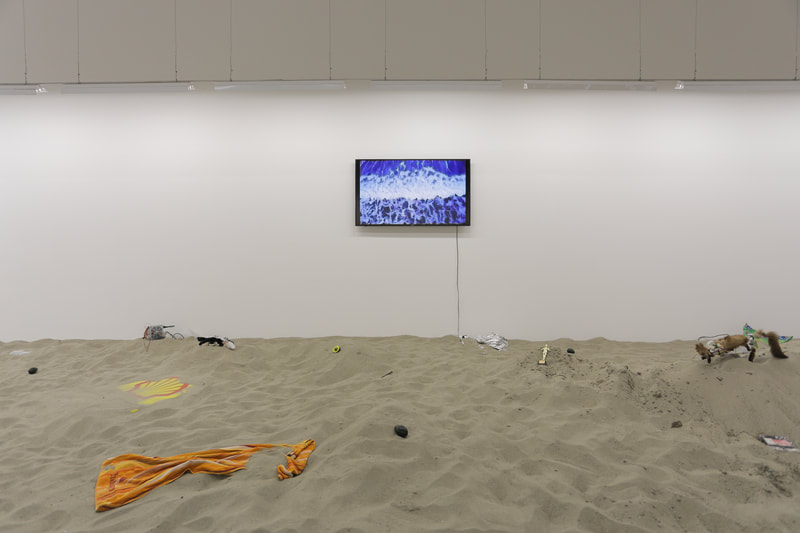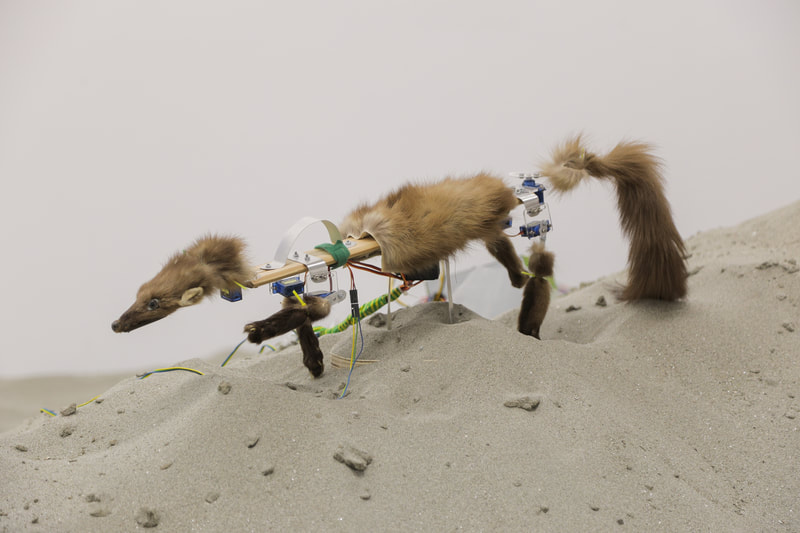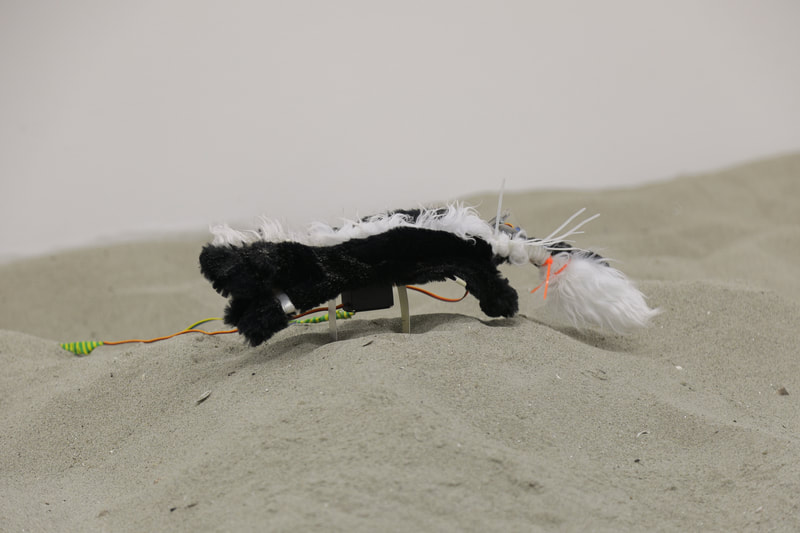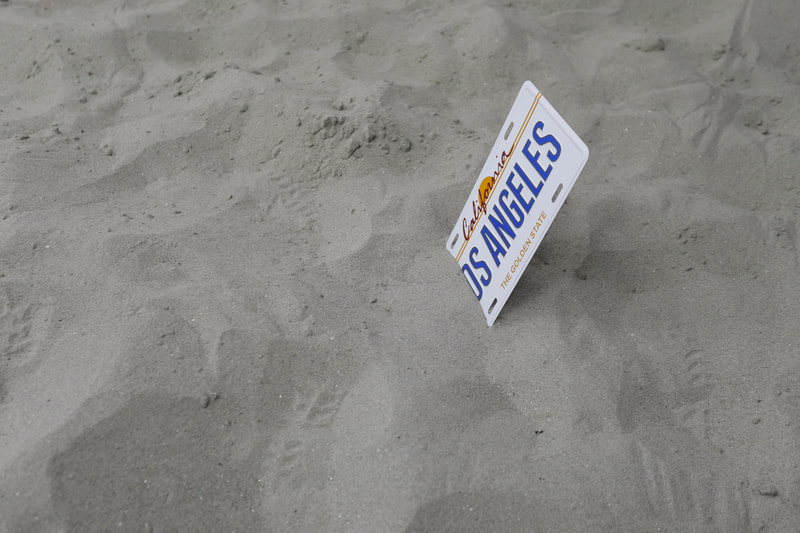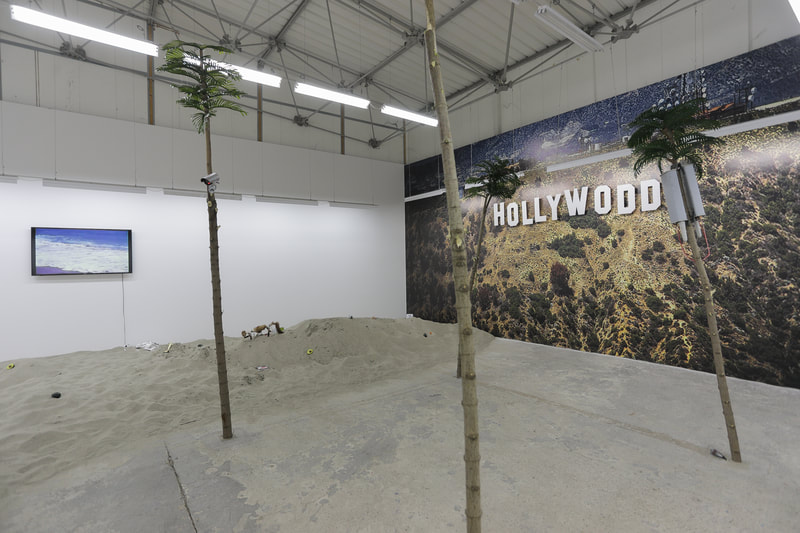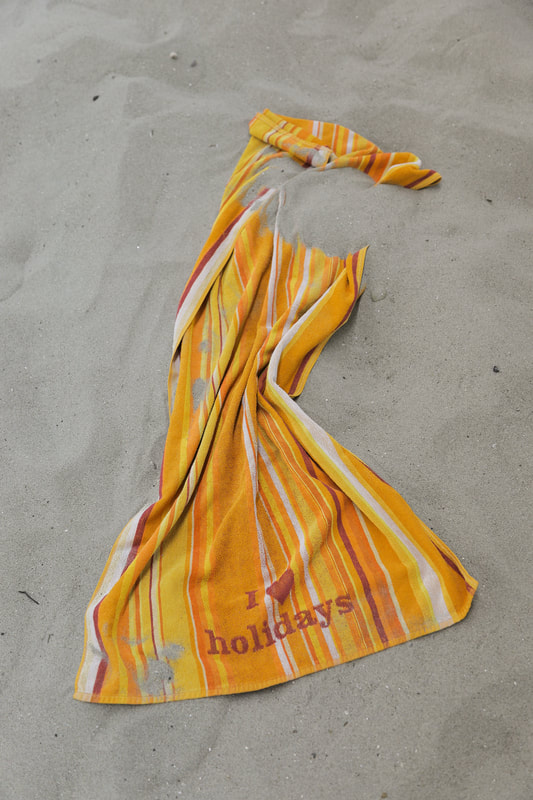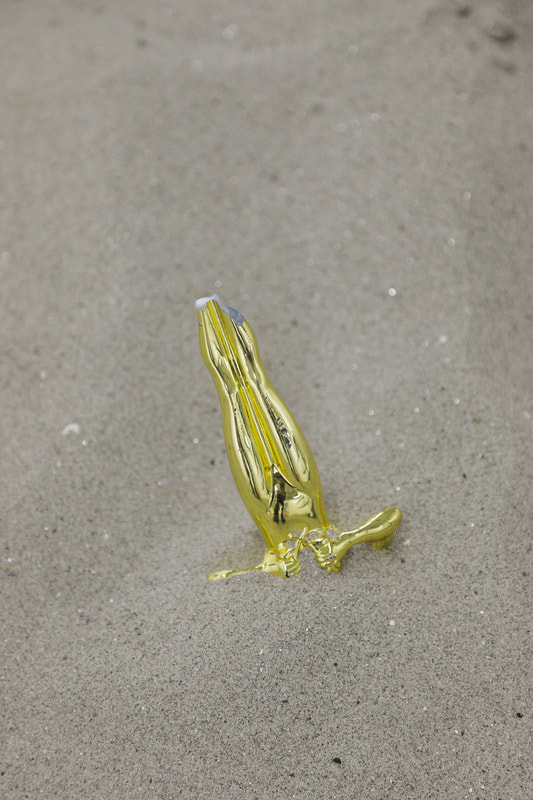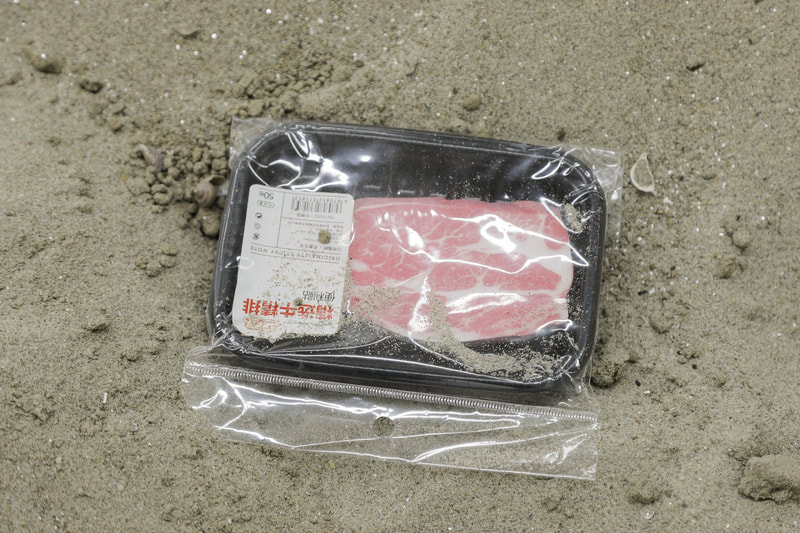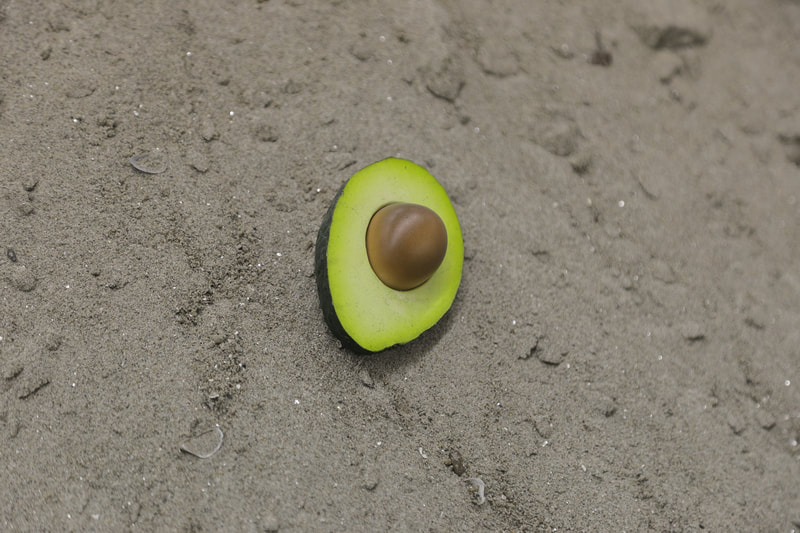We have L.A. at home
Eugster ll Belgrade
-
15.12.2021. - 15.3.2021.
Everyone’s first thought of Los Angeles must be that of sunlit boulevards laced with palm trees. However, the trees did not originate in Los Angeles. Even though the weather conditions allowed for it to happen naturally, most of the city’s vegetation was moved from other places – corresponding, in a way, with America’s colonial history. But why palm trees? Palms, having rarely grown anywhere in Western territories, became a symbol of something exciting, tropical, oriental, and therefore something a wealthy person could afford, something a white man could enjoy (take Gaugin’s paintings, for example). The idea of an endless holiday is a type of luxury. On the other hand, luxury comes in so many other shapes, Los Angeles offering itself as a picturesque representation of it. City villas, pools, cars, designer objects, organic food, private parties, private planes, a view over Mount Lee. Yet the idea of a plant as a status symbol bears some sort of decadence, perversion even, especially when seen from the 2020 perspective. In regard to the alarming updates on climate change, continuous destruction of natural habitats, new viruses that emerge, literally, with wild animal consumption, nature truly is something precious.
Vuk Ćuk has been dealing with luxury from the beginning of his career. Things he wanted to have, things he liked, things that made him happy were a thing of its own; this was money (literally, painted banknotes on paper), Heron Preston socks, Kenzo hats, Kawasaki Ninja. His line of work, however, makes an arc, starting with an exploration into boyish understanding of value and ending at the sedimentation of human activity that created its own geological era, the so-called anthropocene. Thinking about what luxury really is, Los Angeles is both symbolic and real (you may or may not read Lacan into these terms). For Ćuk, L.A. is still, however, imaginary, which started a series of new works made after his travel plans were cancelled, a situation many of us experienced this year. Rather than lamenting over postponed vacations, Vuk Ćuk is looking at the phenomenon of displaced values. Technological achievements, embodied by an interpretation of Tesla Cybertruck, automatically refer to matters of status. Ironically, and yet aptly, Elon Musk’s initiatives to conquer Mars open up the question of luxury once again: to create an artificial air-facilitating surrounding, available only to a single part of the population; in other words, air truly does have a price.
What makes this subject even more relevant is the stunning disproportion in the distribution of wealth, and then as well the distribution of information, rights, possibilities as such. The exhibition title refers to an Internet meme (Me: Mom, can we have L.A.? Mom: We have L.A. at home). In a way, this is a mini auto-parody of status that is wearable, that is Instagrammable, bought and sold, but somehow, rarely lived. The Los Angeles that Ćuk made ’at home’ speaks of many things that the original speaks of, too. The glitches found in the Hollywodd sign, the deconstructed animals and scattered objects are all residue of hyper-production, but they present the discrepancies between two cities as well, for example, Los Angeles / Belgrade. In pictures and in reality, in concept and in experience, things seem to have very different qualities. Whereas the L.A. from our imagination is still a place for dreams and prosperity, most Americans living in California dread civil war on a daily basis now. Belgrade is, unfortunately, familiar with the latter, both as a thing of imagination and of reality.
In the beginning, I mentioned that the new coronavirus is spreading because of wild animal consumption, even though there are many theories suggesting that it was man-made, in a lab. This debate on authenticity is becoming very intense and general nowadays. Let’s bear in mind, then, that the matter of origin, in everything, starting with the food we eat through the air we breathe, the clothes we wear, the people we meet, leads to a dangerous place that insists on cleanliness. Here, we have two important takeaways. One is that humans really have changed the ecosystem irreversibly, which renders us all as zombie predators barely aware of our own aggressive behaviour. The other is that there is no way back from the place we are in now, so we can only go forward and take time to reconsider everything with more care and mindfulness. With that being said, next time we feel anxious about technology or progress, we should consider if we’re looking at the right enemy, or if the enemy is looking at us, hiding behind Heron Preston socks, Kenzo hats, Kawasaki Ninja and other objects that travel back and forth with no problem at all, whereas lockdowns and movement restrictions are now imposed on people.
Natalija Paunić
Eugster ll Belgrade
-
15.12.2021. - 15.3.2021.
Everyone’s first thought of Los Angeles must be that of sunlit boulevards laced with palm trees. However, the trees did not originate in Los Angeles. Even though the weather conditions allowed for it to happen naturally, most of the city’s vegetation was moved from other places – corresponding, in a way, with America’s colonial history. But why palm trees? Palms, having rarely grown anywhere in Western territories, became a symbol of something exciting, tropical, oriental, and therefore something a wealthy person could afford, something a white man could enjoy (take Gaugin’s paintings, for example). The idea of an endless holiday is a type of luxury. On the other hand, luxury comes in so many other shapes, Los Angeles offering itself as a picturesque representation of it. City villas, pools, cars, designer objects, organic food, private parties, private planes, a view over Mount Lee. Yet the idea of a plant as a status symbol bears some sort of decadence, perversion even, especially when seen from the 2020 perspective. In regard to the alarming updates on climate change, continuous destruction of natural habitats, new viruses that emerge, literally, with wild animal consumption, nature truly is something precious.
Vuk Ćuk has been dealing with luxury from the beginning of his career. Things he wanted to have, things he liked, things that made him happy were a thing of its own; this was money (literally, painted banknotes on paper), Heron Preston socks, Kenzo hats, Kawasaki Ninja. His line of work, however, makes an arc, starting with an exploration into boyish understanding of value and ending at the sedimentation of human activity that created its own geological era, the so-called anthropocene. Thinking about what luxury really is, Los Angeles is both symbolic and real (you may or may not read Lacan into these terms). For Ćuk, L.A. is still, however, imaginary, which started a series of new works made after his travel plans were cancelled, a situation many of us experienced this year. Rather than lamenting over postponed vacations, Vuk Ćuk is looking at the phenomenon of displaced values. Technological achievements, embodied by an interpretation of Tesla Cybertruck, automatically refer to matters of status. Ironically, and yet aptly, Elon Musk’s initiatives to conquer Mars open up the question of luxury once again: to create an artificial air-facilitating surrounding, available only to a single part of the population; in other words, air truly does have a price.
What makes this subject even more relevant is the stunning disproportion in the distribution of wealth, and then as well the distribution of information, rights, possibilities as such. The exhibition title refers to an Internet meme (Me: Mom, can we have L.A.? Mom: We have L.A. at home). In a way, this is a mini auto-parody of status that is wearable, that is Instagrammable, bought and sold, but somehow, rarely lived. The Los Angeles that Ćuk made ’at home’ speaks of many things that the original speaks of, too. The glitches found in the Hollywodd sign, the deconstructed animals and scattered objects are all residue of hyper-production, but they present the discrepancies between two cities as well, for example, Los Angeles / Belgrade. In pictures and in reality, in concept and in experience, things seem to have very different qualities. Whereas the L.A. from our imagination is still a place for dreams and prosperity, most Americans living in California dread civil war on a daily basis now. Belgrade is, unfortunately, familiar with the latter, both as a thing of imagination and of reality.
In the beginning, I mentioned that the new coronavirus is spreading because of wild animal consumption, even though there are many theories suggesting that it was man-made, in a lab. This debate on authenticity is becoming very intense and general nowadays. Let’s bear in mind, then, that the matter of origin, in everything, starting with the food we eat through the air we breathe, the clothes we wear, the people we meet, leads to a dangerous place that insists on cleanliness. Here, we have two important takeaways. One is that humans really have changed the ecosystem irreversibly, which renders us all as zombie predators barely aware of our own aggressive behaviour. The other is that there is no way back from the place we are in now, so we can only go forward and take time to reconsider everything with more care and mindfulness. With that being said, next time we feel anxious about technology or progress, we should consider if we’re looking at the right enemy, or if the enemy is looking at us, hiding behind Heron Preston socks, Kenzo hats, Kawasaki Ninja and other objects that travel back and forth with no problem at all, whereas lockdowns and movement restrictions are now imposed on people.
Natalija Paunić
